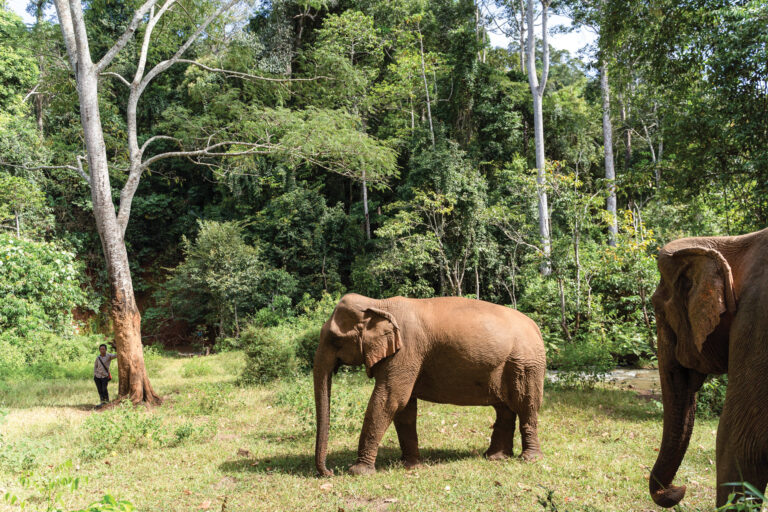
Home Cooking
Discover visits the charismatic Chef Ros Rotanak – Chef Nak, as she is known to her fans – at her home to feel the heart and soul of Cambodian cuisine
Information to help you and your family live long, happy and healthy lives
Also called: 2019-nCov, 2019 Novel Coronavirus
Coronaviruses (Latin. Corona = “wreath, crown”, from characteristic club-shaped spikes that project from their surface) are a large family of viruses which may cause illness in animals or humans. In humans, several coronaviruses are known to cause respiratory infections ranging from the common cold to more severe diseases such as Middle East Respiratory Syndrome (MERS) and Severe Acute Respiratory Syndrome (SARS).
The most recently discovered coronavirus causes the coronavirus disease, COVID-19, an illness that can affect your lungs and airways. The COVID-19 virus spreads primarily through droplets of saliva (spit) or discharge from the nose when an infected person speaks, coughs or sneezes.
Most people infected with the COVID-19 virus will experience mild to moderate respiratory illness and recover without requiring special treatment. The most common symptoms of COVID-19 are fever, dry cough, and tiredness. Some patients may have aches and pains, nasal congestion, sore throat or diarrhea. These symptoms are usually mild and begin gradually. Some people become infected but only have very mild symptoms.
However, anyone can catch COVID-19 and become seriously ill. Even people with very mild symptoms of COVID-19 can transmit the virus. People of all ages who experience fever, cough and difficulty breathing should seek immediate medical attention.
As with other respiratory infections like the flu or the common cold, public health measures are critical to slow the spread of illnesses. Public health measures are everyday preventive actions that include:
To date, there is no vaccine and no specific antiviral medicines against COVID-19. Mild symptoms can usually be treated at home. If your symptoms are severe, medical care may be needed until you recover. However, people with serious illness may need to be hospitalized so that they can receive life-saving treatment for complications. Most patients recover thanks to such care.
Possible vaccines and some specific drug treatments are currently being explored. They are being tested through clinical trials in many countries, and global organizations, such as the WHO, are coordinating efforts to develop vaccines and medicines to prevent and treat COVID-19.

Discover visits the charismatic Chef Ros Rotanak – Chef Nak, as she is known to her fans – at her home to feel the heart and soul of Cambodian cuisine

First garment industry awards honour excellence in social and environmental innovation

The nation’s Global MPI value has plummeted over nearly eight years, reducing by more than half the number of citizens living in poverty

Museum co-director discusses Cambodia’s unique monetary heritage — and what it means to the nation today

Passenger and commercial vehicles find their own preferred routes for faster, safer and flood-free highway travel

Mondulkiri is Cambodia’s largest yet most sparsely populated province, home to evergreen forests and undulating hills. We visit the Jahoo Gibbon Camp and the Elephant Valley Project, two ecotourism initiatives aiming to protect some of the country’s most endangered wildlife as well as the land that the indigenous Bunong have lived off for centuries

Challenges in real estate market still exist, as company makes clear in its quarterly webinar

Getting the rules right is essential for keeping competitive and moving up value chains

$1.1 billion international airport begins operation, but whether travellers will come remains an open question

The Cambodian government defends its proposed restrictions on the free transfer of data across international borders

The “silk island” of Koh Dach, the pastoral countryside of Arey Ksat, and the ancient ruins of Oudong and Phnom Chisor are all within easy reach of the capital city

A World Mental Health Day op-ed from the United Nations International Children’s Emergency Fund (UNICEF) and the United Nations Fund for Population Activities (UNFPA)
